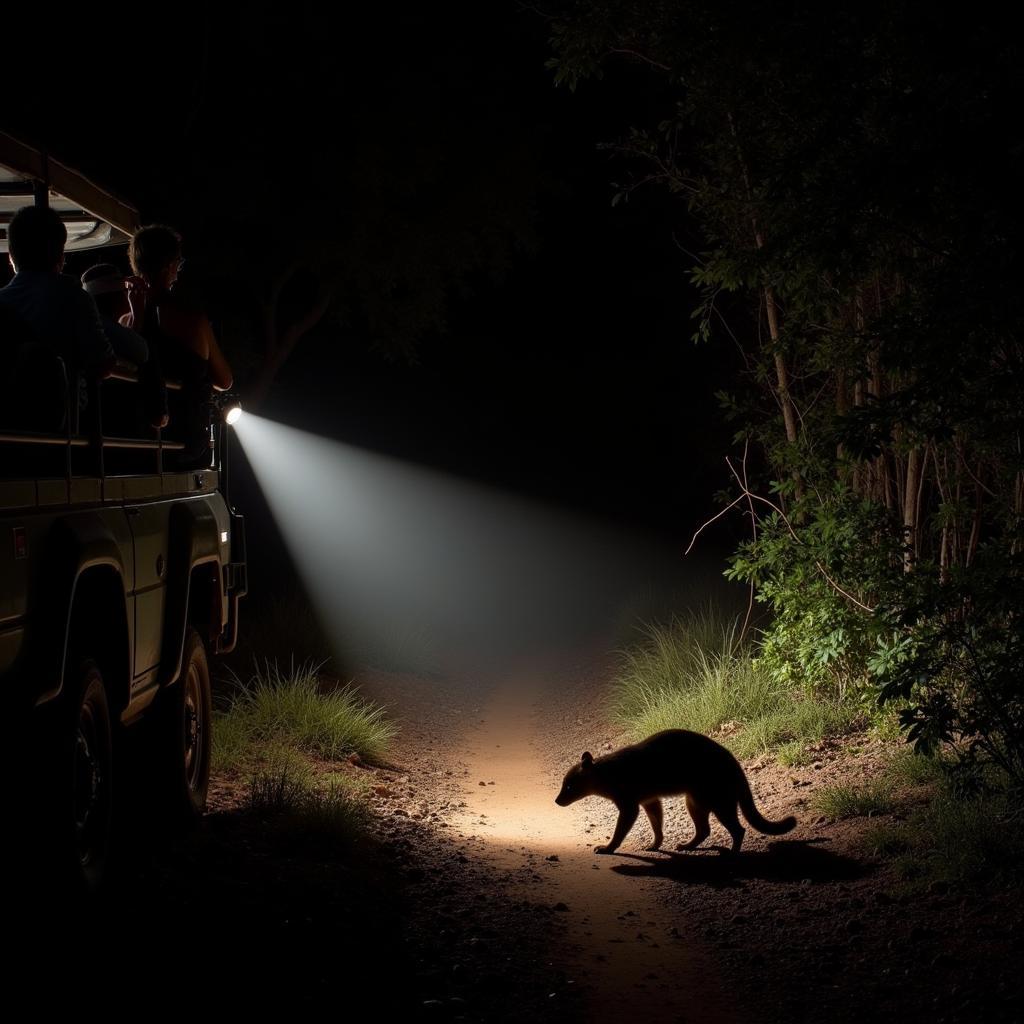Encountering the Elusive African Civet in Kruger National Park
Kruger National Park, a vast wilderness in South Africa, offers unparalleled opportunities for wildlife enthusiasts to witness Africa’s iconic animals. Among the park’s diverse inhabitants, the African civet holds a certain mystique, often heard but rarely seen. These nocturnal creatures, with their distinctive black and white markings and musky scent, add an element of intrigue to the already captivating Kruger experience.
Unmasking the African Civet: An Overview
The African civet, scientifically known as Civettictis civetta, is not a cat despite its feline appearance. It belongs to the Viverridae family, which also includes genets and mongooses. These solitary, primarily terrestrial animals are found throughout sub-Saharan Africa in habitats with dense vegetation and near water sources.
Navigating the Night: African Civet Behavior
African civets are most active during the nighttime hours, using their keen senses of smell and hearing to navigate their territory and hunt for food. Their diet is omnivorous, consisting of rodents, birds, insects, reptiles, fruits, and even carrion.
“African civets play a vital role in their ecosystem,” explains Dr. Maya Nkosi, a wildlife biologist specializing in African mammal behavior. “Their scavenging habits help control pest populations and decompose organic matter, contributing to the delicate balance of the ecosystem.”
Their nocturnal nature and elusive behavior make sightings rare, adding an element of excitement to any encounter.
The Allure of the African Civet in Kruger
While the Big Five often steal the show in Kruger, the thrill of spotting an African civet is a rewarding experience for many visitors. Their distinctive markings, coupled with their unique musky scent, create an unforgettable memory.
“I’ve been fortunate enough to have several encounters with African civets during my time in Kruger,” shares John Tembo, a seasoned safari guide. “Their nocturnal habits mean you really need to be patient and observant. Often, you’ll hear their distinctive chirps and growls before you catch a glimpse of them.”
 Spotting an African civet on a night drive in Kruger
Spotting an African civet on a night drive in Kruger
Tips for Spotting an African Civet in Kruger
- Embrace the Night: Join a guided night drive for the best chances of spotting these nocturnal creatures.
- Listen Carefully: Pay attention to any rustling sounds or the civet’s distinctive chirps and growls.
- Scan Water Sources: African civets often visit waterholes after dark, offering potential sighting opportunities.
- Be Patient: Spotting an African civet requires patience and a keen eye.
The African civet, with its enigmatic presence, embodies the magic of Kruger National Park. It serves as a reminder that the beauty of the African wilderness lies not only in its iconic megafauna but also in the subtle wonders of its lesser-known inhabitants.
